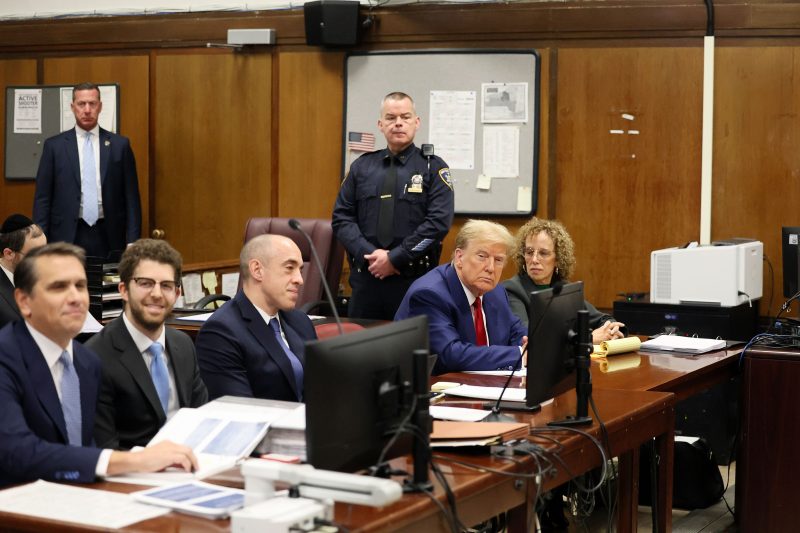In the world of American politics, the prospect of a presidential candidate being convicted of a crime is a highly contentious issue that raises complex legal and ethical questions. As the 2024 election cycle heats up, speculation is rife about whether former President Donald Trump, despite facing multiple legal challenges, could potentially secure the GOP nomination once again.
The scenario of a candidate running for president while being embroiled in legal battles is not unprecedented in American history. In such a situation, the question arises of whether a candidate can serve as president if they are convicted of a crime. Legal experts and scholars have debated this issue extensively, with opinions varying widely.
A crucial factor in this discussion is the constitutional requirement that a president must be a natural-born citizen of the United States and at least 35 years old. Beyond these basic stipulations, the Constitution does not explicitly address the issue of a president-elect being convicted of a crime. As a result, the interpretation of the law in such cases often falls to legal precedent, constitutional analysis, and political considerations.
One key legal concept that comes into play in this scenario is the presumption of innocence, a fundamental tenet of the American justice system. Until a defendant is proven guilty beyond a reasonable doubt in a court of law, they are considered innocent under the law. This principle applies not only to ordinary citizens but also to public officials, including presidential candidates.
The idea of a convicted individual serving as president raises complex questions about the functioning of the executive branch and the separation of powers. The president holds significant authority and responsibility, and the ability of a convicted individual to fulfill these duties effectively is a matter of serious concern.
Moreover, the potential impact on public trust and confidence in the government must also be considered. A president facing criminal charges or convictions could undermine the credibility of the office and lead to political instability and uncertainty.
In the case of Donald Trump, his legal troubles stemming from investigations into his business dealings, tax practices, and other activities have cast a shadow over his potential candidacy. While his supporters remain steadfast in their loyalty, critics argue that his legal entanglements disqualify him from seeking or holding the highest office in the land.
Ultimately, the question of whether a convicted individual can serve as president is a complex and contentious issue that requires careful consideration of legal, ethical, and political factors. As the 2024 election approaches, the American public, legal experts, and political commentators will continue to debate this question, shaping the future of the country’s political landscape.
